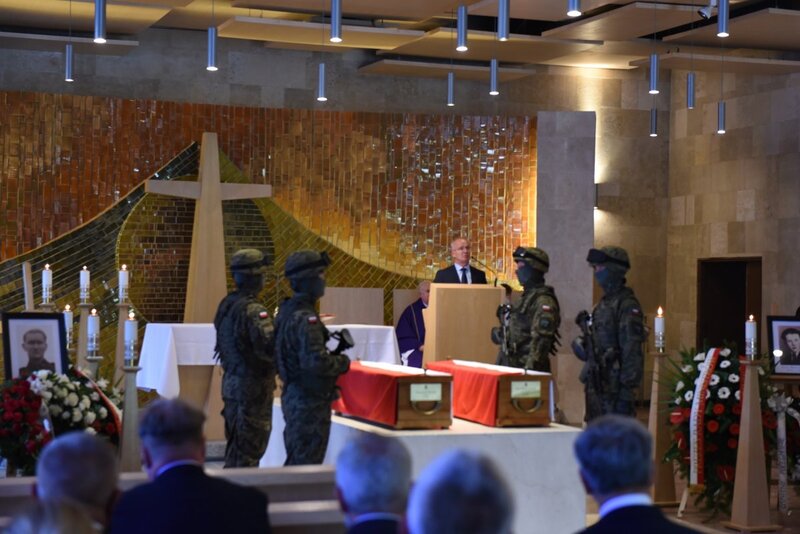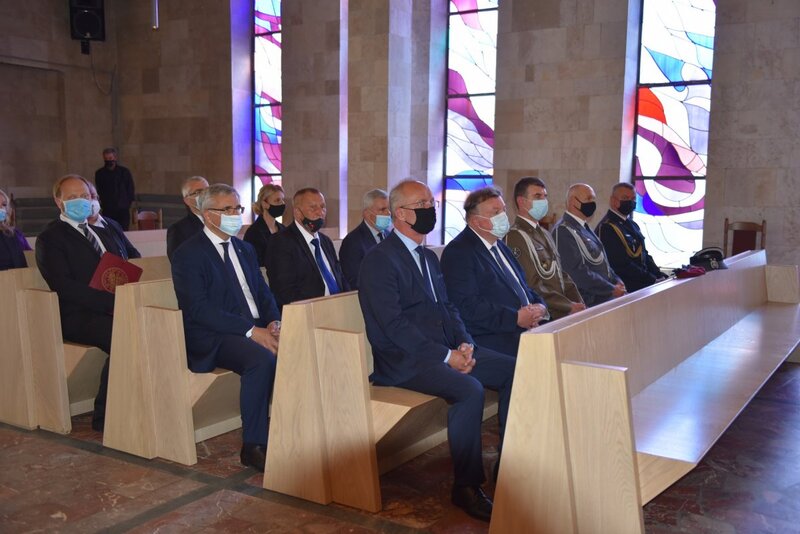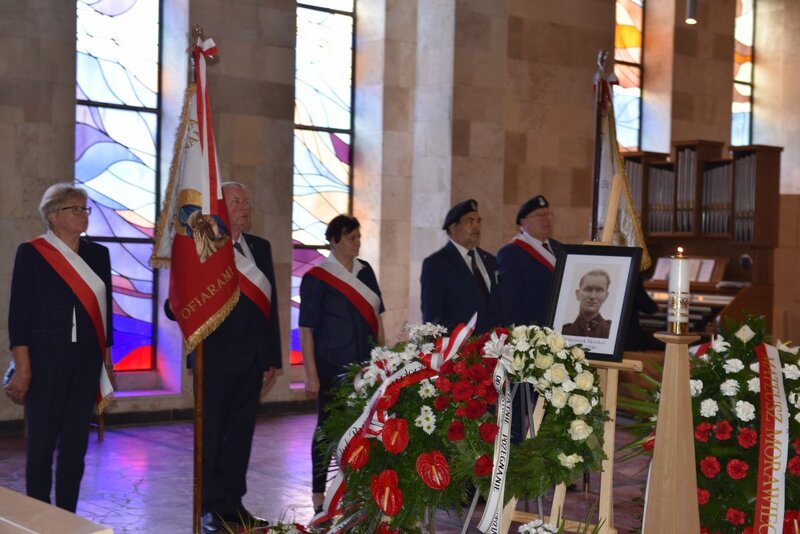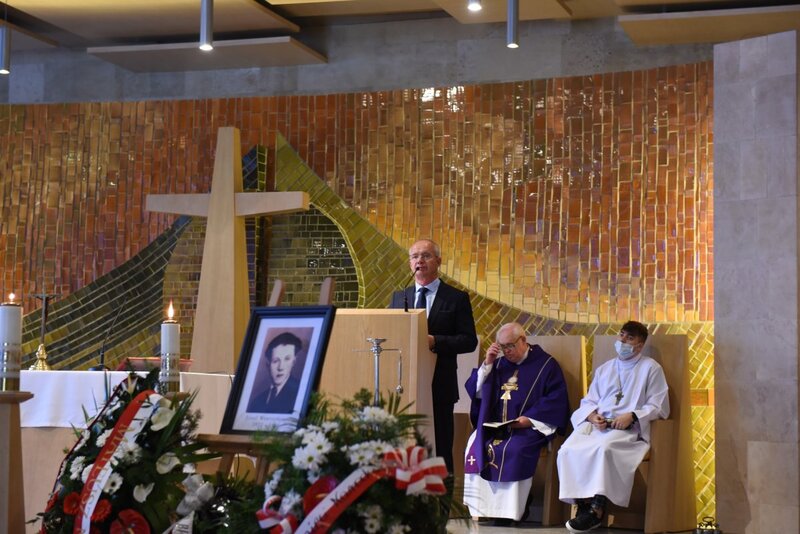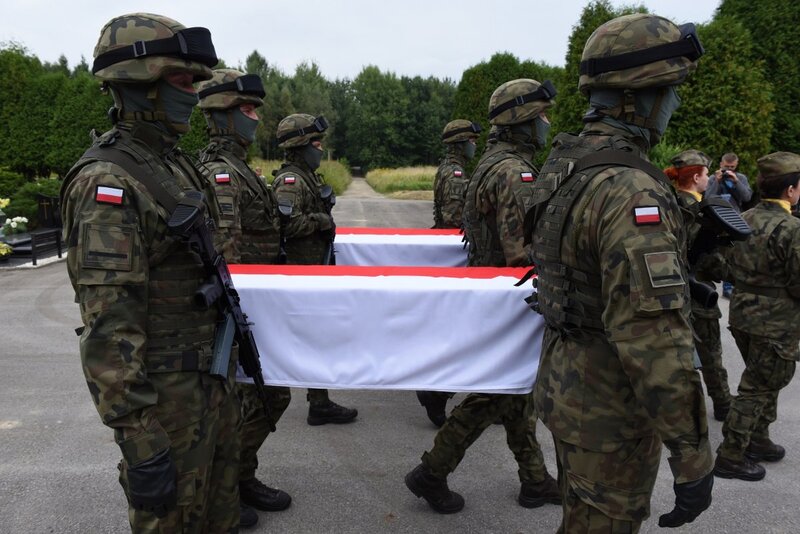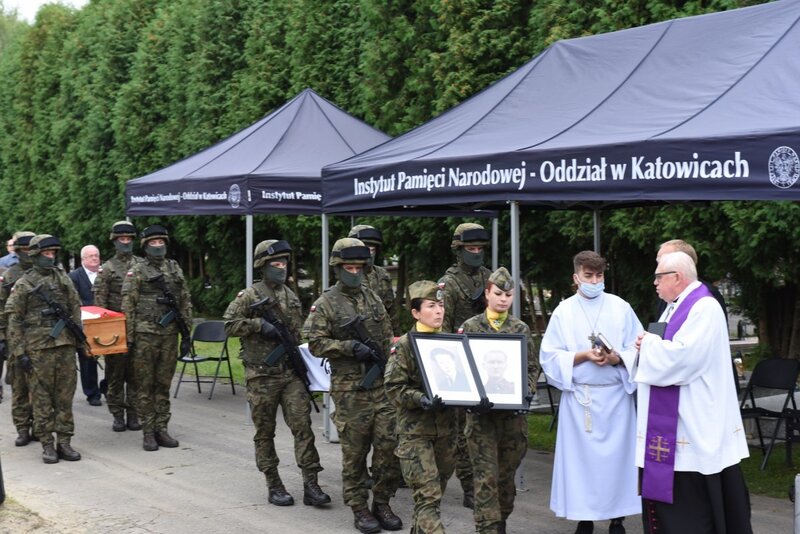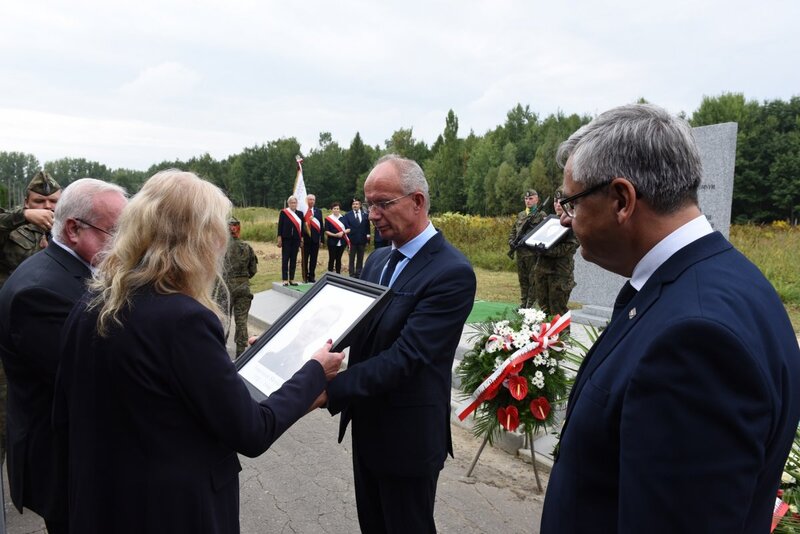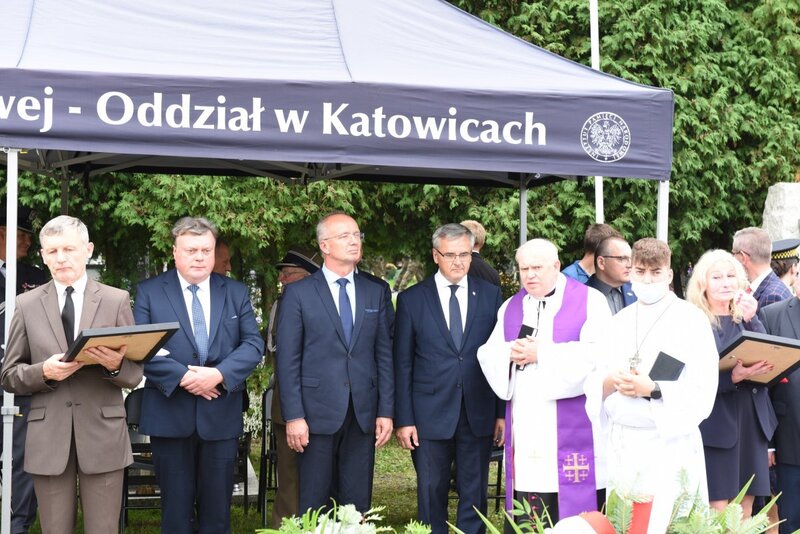During the ceremony, the IPN’s Deputy President said that Wawrzyńczyk and Skrobol were two heroes, defenders of the Homeland. "Bowing our heads over their coffins, we recall their fight for Poland, their dedication and commitment, their dignified attitudes, in battle, during the investigation, and during the trial. Today, we also recall the sacrifice of their young lives. (...) Rest in peace, soldiers, Poland did not forget about you," Szwagrzyk said.
Franciszek Skrobol was born on 25 October 1921 in Kleszczów near Żory. During the German occupation, he helped those who were hiding from the Gestapo. In August 1944, he was forced to dig trenches, but manager to escape and joined the Polish resistance. According to family accounts, he was also active in the Home Army during World War II. After the front passed through, he served in the Citizens' Militia (MO) units in Suszec and Żory. At the same time, since January 1946, he joined the Underground Polish Army, anticommunist paramilitary resistance organisation. Though registered as an undercover Security Service collaborator, he did not cooperate with the communists; on the contrary, he helped eliminate the officer who spied his unit. He was arrested by the security people in Cieszyn on 16 July 1946. Sentenced to death by the Military District Court in Katowice on 17 October 1946, Skrobol was executed on 28 December 1946 at Katowice prison at Mikołowska Street.
The remains of Franciszek Skrobol were found in September 2017 during exhumation work conducted by the IPN’s experts at the municipal cemetery at Panewnicka Street in Katowice.
Józef Wawrzyńczyk nom de guerre "Pepik" was born on 2 August 1922 in Zebrzydowice (today’s part of Rybnik). His father, Wilhelm, fought in the Silesian Uprisings. In the years 1938-1944, he worked in the mines of Zaolzie. From 1944 to 194,5 he was hiding in Świerklany, where he was probably active in the local units of the Home Army and the Armed Forces Delegation for Poland. From March to May 1945, he served in the Citizens' Militia (MO) unit in Świerklany. From September 1945, he was a member of the anti-communist resistance unit in the area of Rybnik. Arrested by the security people in Gliwice on 20 February 1946, he was subjected to a brutal investigation. On 31 August 1946, the Military District Court in Katowice sentenced Józef Wawrzyńczyk to death. "Pepik" was executed on 11 December 1946 in Katowice prison at Mikołowska Street.
The remains of Józef Wawrzyńczyk were found in September 2018 the IPN’s experts in Katowice’s municipal cemetery at Panewnicka Street.
* * *
Franciszek Skrobol and Józef Wawrzyńczyk were interred at the plot where the quarter of the Cursed Soldiers was established thanks to the IPN’s efforts. During this year's celebrations of the Cursed Soldiers National Remembrance Day in Katowice, the "Gloria Victis" monument was unveiled and consecrated on the site of the cemetery quarter in Katowice’s municipal cemetery. To honor those murdered by the communists, the Institute of National Remembrance took steps to find a place to build individual graves. The location was selected in cooperation with the Katowice City Hall and with the approval of the Silesian Provincial Office in Katowice, which, according to the relevant law, supervises the issues related to war graves. The City of Katowice provided the site for the construction free of charge. The project was commissioned to Piotr Perleda, an architect from Pszczyna. A monument commemorating the victims of the communist regime's judicial crimes was erected in the central part of the cemetery. The remains of the post-war anti-communist underground soldiers, found by the IPN’s experts, will rest on both sides of the monument.
